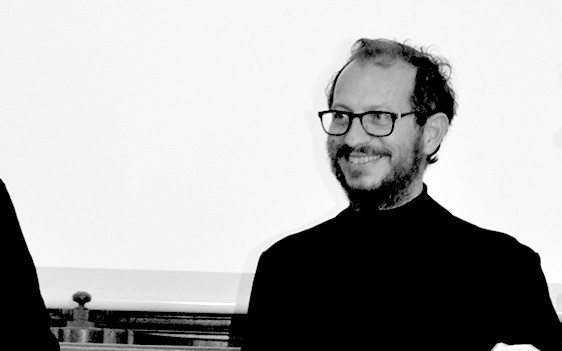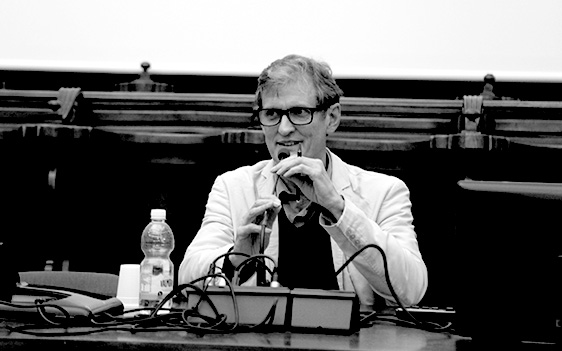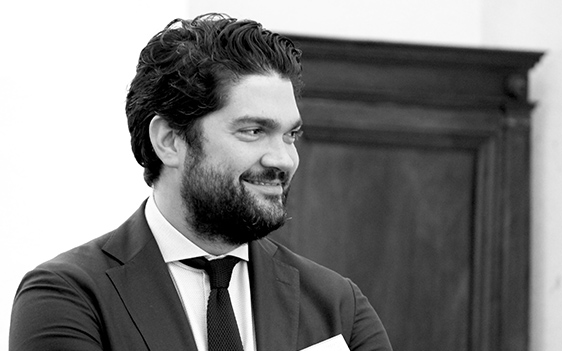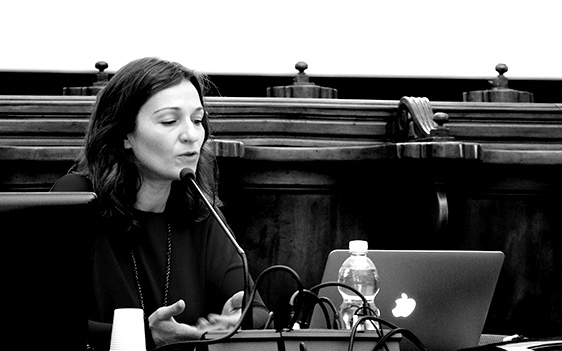
THE AUGMENTED CITY
Talking about resilience in a fragile territory like Italy today, it seems very difficult and make us responsible to find new answers and process to face such a complex challenge.
Today our environments are facing different metamorphosis. The first is the one in which resilience is considered as design component. Another one is related with the makers’ phenomenon which transform the cities in real laboratories of fabrication, the Fab city, adding the productive component to the urban context. The latter is the metamorphosis of sharing, of the economy and circular society that change our relation with spaces in a radical way.
Any declinations of design we develop today, the main question is what is the impact of these solutions? But more, we are really able to detect those impacts? We have the adequate tools and knowledges to do that?
In the contemporary world, due to the occurrence of those different metamorphosis, we need a sensor to recognize the impacts of them within the new urban metabolism of cities and territories.
The first component of this sensor is the ‘Circular Land’s Horizon’. We know how works the circular economy, but we do need to comprehend and design also the circular territory and to do that we have to improve and update mostly the governance and planning factors.
Another relevant component is the ‘Protocol Matter’ which basically claims for a ‘no more masterplan!’ approach. The masterplan attitude was inspired by the idea of an external energy that would have bring life, prosperity, happiness when it was introduced into a neighbourhood or into a neglected urban area. All the past masterplan projects were basically moved by this rigid belief.
Today we do not have to totally avoid the planning method, but try to think which kind of plan we need to elaborate, which kind of protocol we have to look for.
I proposed to cultivate the ‘City Forming Protocol’ based on three steps: Colonization, Consolidation and Development.
Last component to understand the today world is a real ‘Challenge’, the challenge of the Augmented City. I’m not only talking about smart or intelligent cities, but I’m referring to the possibility to add to our cities a layer in which are condensed all those sensory and sensitive devices belonging to the new technologies. In this way, the city adds also many capabilities to her inhabitants giving them more awareness and power in everyday challenges.
All the components collected so far are part of a growing ‘Manifesto’ for urbanism and urbanists. According to the Manifesto, our living and working spaces have to be open (and open-source), responsive, social and we would design it as entrepreneurial, fab (namely factory and productive), knowledge and interface cities.
We need to look for the wrong path in order to innovate. The right path no longer leads nowhere.
The final outcome of our work as urbanists and citizens have to be the Creative, Innovative and Knowledge Dividend, that must to be fed in a more collective and sharing way.
These strategies have been tested in two important Bootcamps in the past years: the City Forming Palermo Project (2011/2013) and the City Forming Favara project (ongoing).
MAURIZIO CARTA
unipa
SMART PLANNING LAB
The Smart Planning Lab is an operational tool that integrates applied research, communication and education in the i-NEXT Project (Innovation for greeN Energy and eXchange in Transportation), funded by the Italian Operative Program “Research and Competitiveness”. It carries out three main functions:
1) at an early stage as a producer of context and scenario analysis, and as a producer of solutions aimed at a new and more efficient regulation of life cycles and the localization of actractive urban functions (cultural, economic and social).
2) In the intermediate stage as “intelligent hub” that allows a constant connection with the needs of urban planning and management, using sectorial analysis or operational proposals and developing guidelines for urban governance and integrated planning for the sustainable development.
3)being permanent as a tool of communication and dissemination of methods and outcomes of the Project, contributing to the strengthening of the necessary “Smart Citizenship and Social Innovation”.
CURRICULUM
Maurizio Carta is an architect and PhD in urbanism and regional planning. He is full professor of urban and regional planning at the Department of Architecture of the University of Palermo.
In 1998 he wasamong the founders of the Degree in “Urbanism and Regional and Landscape Planning” of Palermo, whichwasinspired by the holisticvision of Adriano Olivetti and Giovanni Astengo abouturban planning as a discipline capable of integratingdifferentknowledge, interpretations and tools for planning and governingcities, rurallands and landscape. He’sPresident of the Polytechnic School of the University of Palermo and DeputyRector for Territorial Development and Cultural Affairs. He was the Coordinator of the B.Sc in “Urbanism, regional and landscape planning” and of the M.Sc in “Urban and Regional Planning”. He is the responsible of the “Smart Planning Lab” for improving the smartness of cities and communities and for elaborating innovative planning tools.



